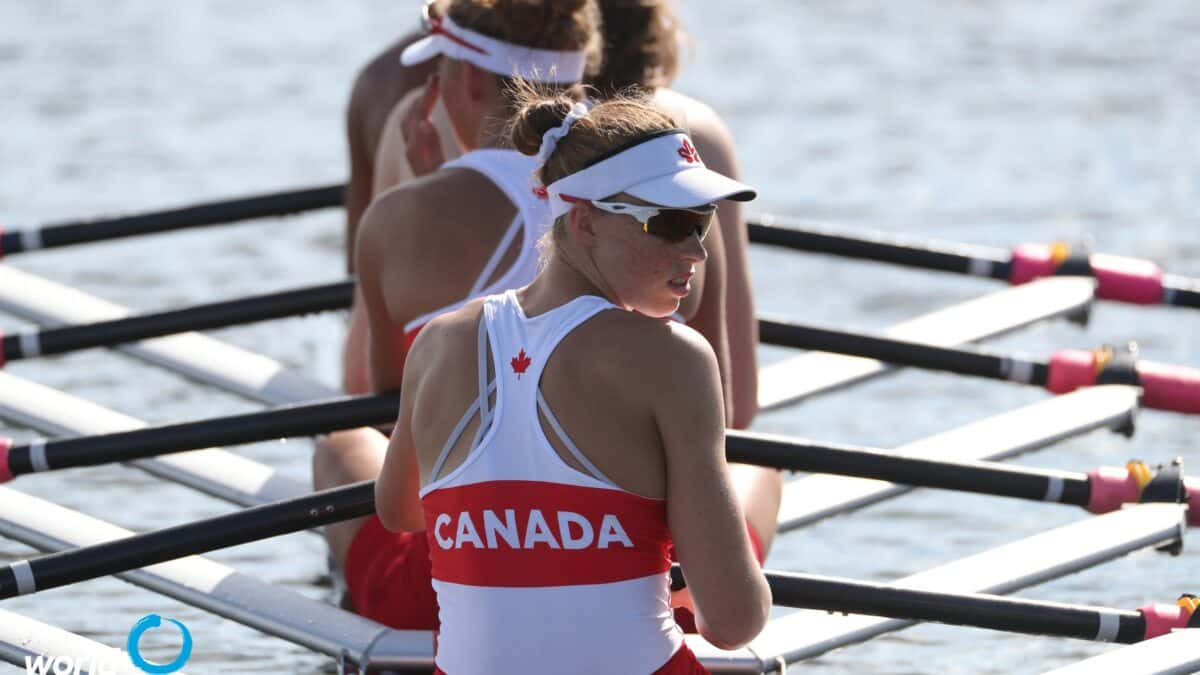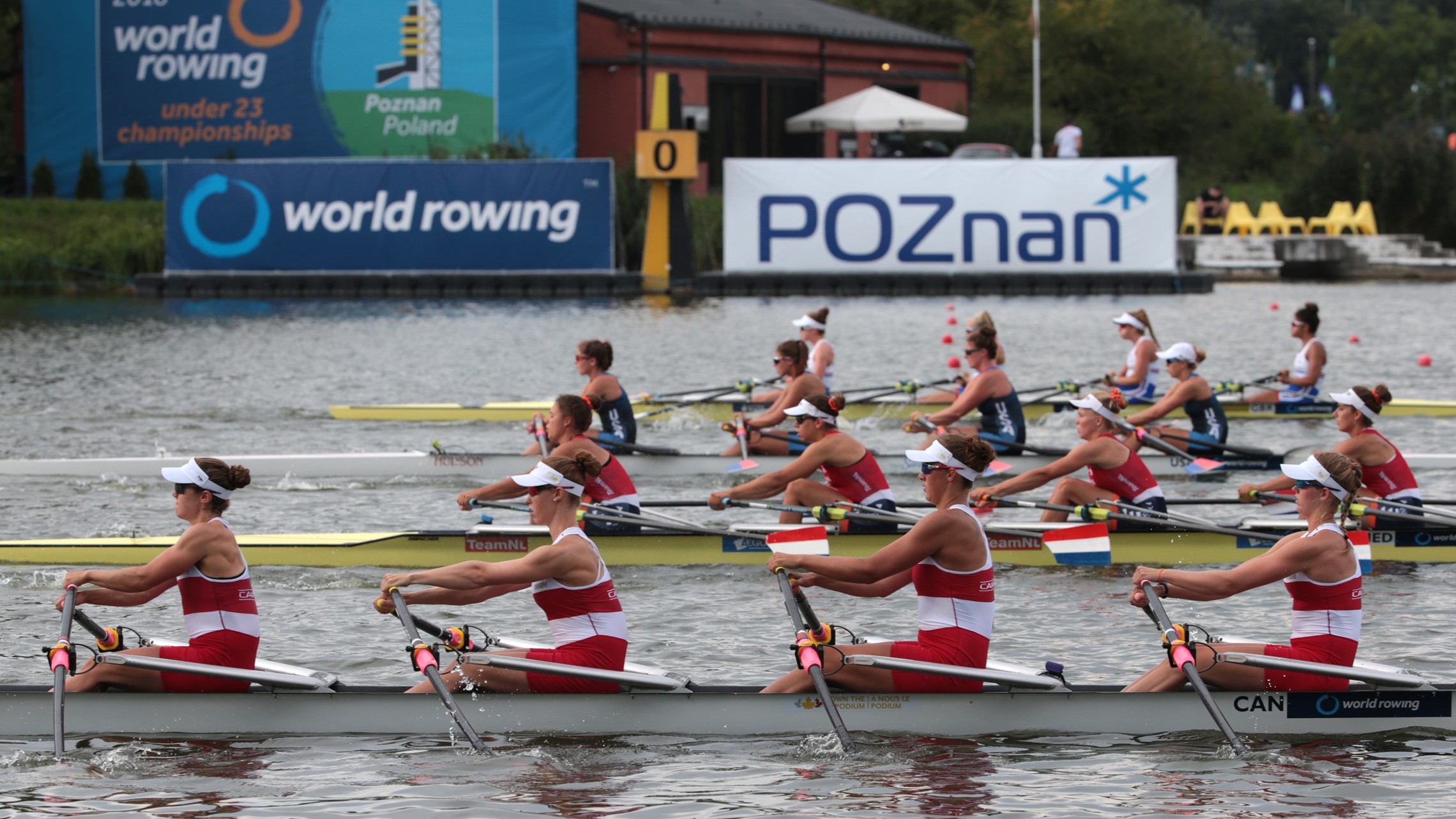
26 Apr 2021
Experiencing and adapting to rowing through COVID
The past year has meant a whole new approach to being an elite athlete and, depending on where you are in the world, the experience has been widely different. Canada’s Marilou Duvernay-Tardif is relatively new to the world of elite rowing and her experience has been rather unique.
Duvernay-Tardif started 2021 with a third-place finish in the Open Women’s 2000m event the World Rowing Indoor Championships, but a year ago, as the pandemic sent her nation into lockdown, she wasn’t sure what lay ahead. Duvernay-Tardif shares her experiences of training through the year of COVID and what’s ahead for one of Canada’s up-and-coming rowers.
Olympic dreams
With only four years in the sport, Duvernay-Tardif was a relative beginner when she received an invitation to Canada’s Olympic selection camp in the autumn of 2019. “My goal had been Paris 2024, but things got fast tracked when I was invited to the Tokyo training camp,” recalls Duvernay-Tardif.
“It was a great experience,” says Duvernay-Tardif, who like many in their first selection camp did not make an Olympic crew. “And then in March, the pandemic shut everything down.”
“There were a few weeks that were pretty rough,” she says of the reality of figuring out the new normal not just of training, but of living in the age of COVID. “I went back home to Knowlton [site of the Canadian province of Quebec’s rowing centre near Montreal] and everything was shut down. My roommate and I had an erg and were training in our apartment.”
Gradually, lockdowns lifted. “It was great when we could finally to get back on the water,” she recalls. But without races to aim for, Duvernay-Tardif had to set new objectives. Restrictions on training also led to some creative thinking by her and her coach, Gavin McKay, the lead for Quebec’s performance programme.
“We decided to make everything as technically the best as I could make it and really use the time,” she says. “We had some good ideas to make training more entertaining and even did a World Rowing Championship style regatta with just me, racing against Gavin in the coach boat. We compared my times to the singles at the previous World Rowing Championships and were able to do a full regatta from heats to finals.
“Overall, it was a really great summer of training.”

For the love of the sport
When it was clear that the Olympics would be postponed until 2021, Canada’s national rowing federation opted not to re-do selection. For Duvernay-Tardif, that decision plus the changes to how she was able to train over the past 12 months had provided a rare moment of space to breath and time to reflect.
“I was always unsure if I was doing it because I was told that I was good at it or if I was doing it because I love it,” says Duvernay-Tardif. “I did gymnastics before, but had to stop because I am six feet tall. My brother had actually rowed for a season at McGill University in Montreal and he said that I should give it a try. I just showed up and got into Rowing Canada’s [talent identification] ‘Row to Podium’ programme. That’s where I met my coach, Gavin.
“It is so important to do something because you love it. I discovered through COVID how much I love the sport. I do love racing and regattas, but I love the sport more. I love training and putting in the work.”
A balanced approach
With Paris 2024 getting closer and all the hard training ahead for Duvernay-Tardif to get there, this deeper understanding of why she is doing elite sports can only help her in her quest. The ability to balance life with sport is increasingly seen as an asset in high performance athletes who want to be in it for the long term.
For Duvernay-Terdif, that sort of thing it seems runs in the family. Her brother, Laurent, is another elite athlete who loves his sport but sees it as part of his life’s journey rather than defining it. After rowing for a year at McGill and getting his sister into the sport, he went on to play professional American football and simultaneously complete a medical degree. In February 2020, his team won the United States’ National Football League Super Bowl. Later that year he became the first NFL player to announce he was sitting out the 2020 season. The league’s only active player with an MD had decided to work on the COVID front lines in a Montreal hospital. For his success in sport and contributions to society, he was awarded Canada’s highest sporting trophy for 2020.
“Sport is important to the athletes who are doing it, but it is really just a game,” reflects Duvernay-Tardif about her brother’s decision as well as her own reconnection to what elite sport means in her life.
“Taking the time to focus on developing and not just on preparing for the next regatta removed the stress of performance,” she says. “Having that opportunity will be beneficial in the long term. I discovered things about myself as an athlete and as a person that I never knew.”

